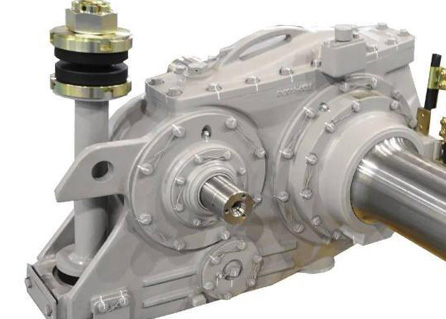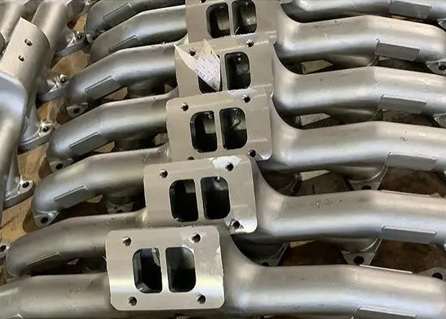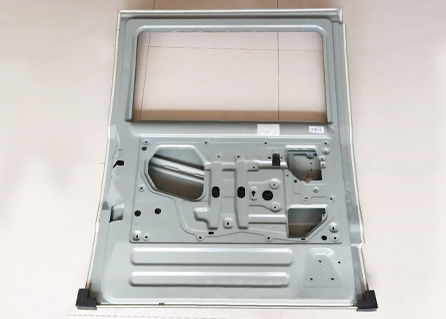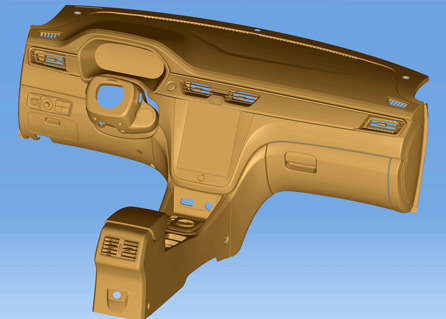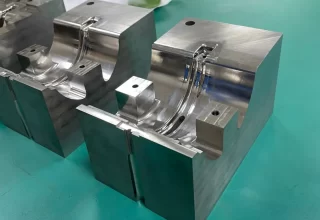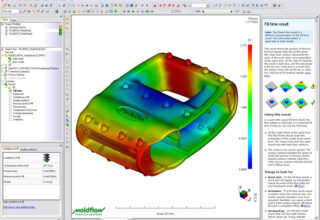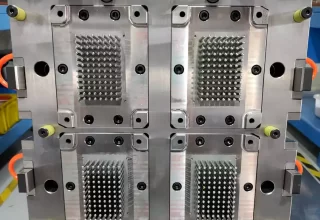Automotive
Prototyping and Rapid production for
Automotive Industry
We have rich manufacturing experience and can produce related supporting products for the automotive industry, which can bring your products to the market faster.

Why do Automative Supplier Choose us?
We serve manufacturers of a wide range of electronics, connectors, communication components, and IoT with specialized capabilities that help them improve the quality of their products. Our extensive expertise in electronic prototyping and manufacturing processes helps us meet the needs of each unique customer.
Professional Ability
Under the premise of creating the greatest value for our customers, we ensure that your products are manufactured with the most suitable materials and technologies by our professional technical capabilities and various processing capabilities (e.g. CNC machining, sheet metal fabrication, die casting, etc.).
Experiences
We have a team of people who have been immersed in the manufacturing and processing industry for many years, including skilled workers, mechanical engineers, quality supervisors and so on. We can solve the difficulties encountered in the manufacturing process and provide customers with satisfactory products.
Precision Machining
The manufacture of precision parts requires not only sophisticated equipment, but also specialized operators, accurate inspection equipment, and more. Our capabilities allow us to produce parts with tolerances up to +/- 0.0004”(0.01mm). Providing our customers with satisfactory products is our goal.
Abundant Resources
The product from design to become a finished product is a complex process, which requires the cooperation of various resources. We have abundant manufacturing resources in Shenzhen, China, which can help customers solve various problems in manufacturing.
Prototyping & Production Solutions
Products from prototype manufacturing to production of finished products, mainly need to go through the following processes, in the actual product development process, there may be cross-over and overlap between the processes, the specific process and order will vary according to the type and complexity of the product.
Prototyping
Prototyping is an important part of the product development process that helps product managers, designers, developers, and others to better understand the functionality, performance, usability, and security of a product.
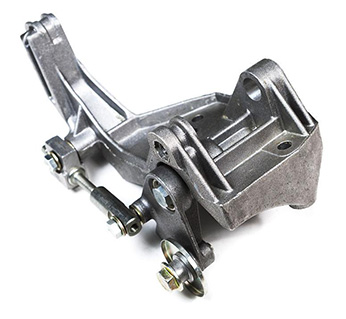
Our engineers will stay in close communication with you to evaluate and optimize your designs, and we’ll bring your early designs to life by building prototypes using production-grade materials to make sure they’re fully functional and ready for testing! Prototyping can be done in the following ways commonly:
Metal prototyping: using cnc machining, sheet metal fabrication, welding and other tools to create prototypes.
3D printed prototypes: prototypes are made using 3D printers.
Of course, you can choice your way.
Engineering Validation & Testing
Our prototypes are designed to mimic the final product, providing you with a clear visual representation of the design so that any potential problems can be easily identified, analyzed and fine-tuned to meet the design objectives, and of course, the last opportunity to make changes to the design and prototype.

The EVT phase performs a variety of tests depending on the application of your product and the environment in which it operates..
Elements vetted during EVT:
Includes: Conformance test, Thermal test, Power measurement test, Signal quality test, Electromagnetic interference test.
Design Validation & Testing
The purpose of Design Validation is that we need to prove that all the features of the product will fulfill the user’s needs. Our experts can test your prototype, work with you and provide in-depth feedback to help you evaluate its performance and appearance.
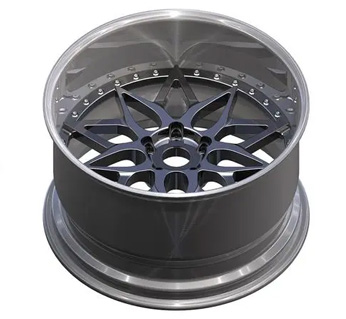
Design validation refers to the testing of products on the basis of product engineering validation to ensure that the product can meet the user’s needs by testing the user experience, use effect and so on.
Includes: function test, performance test, reliability test, and safety test.
Production Validation & Testing
The main purpose of Production Validation and Testing is to test all molds, equipment, tools, fixtures, test tools, etc. before formal production, and PVT is the final stage before mass production begins. It must be in place and verified before the production pilot can start. We have the expertise to ensure that products are manufactured and tested in a reliable and efficient manner.
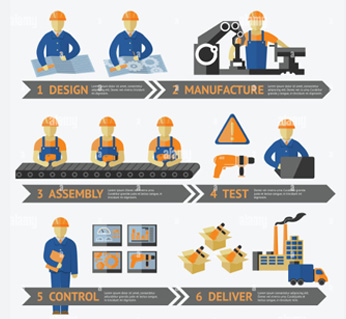
PVT
At this stage, the focus is on optimizing various production details such as line speed, operator expertise, quality inspector testing methods and accuracy, product scrap rate, and daily output.
Mass Manufacturing
From people, machines, materials, system and environment we have a sophisticated factory management system that ensures that customer orders are quickly produced and tested in our factory.
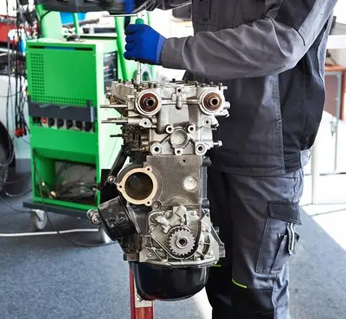
With advanced manufacturing techniques and management capabilities, we will take your customized products to the next level. Our team is committed to ensuring that your products meet quality and performance requirements, keep costs low and lead times short.
- Rigorous precision machining
- Unrivaled post-processing operations
- Comprehensive quality control system
Testing & Acceptance
Capablemachining is committed to continuously improving and optimizing all manufacturing capabilities from prototype to production, enhancing every aspect of the quality control process, and ultimately providing customer satisfaction.
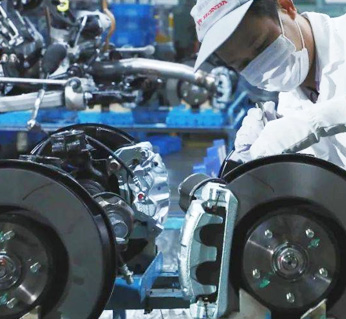
Quality control
We have a mature quality assurance system and professional technical engineers to ensure that all products from raw materials to finished products. We also have the most advanced quality testing technology and testing equipment to test the dimensions, hardness, tensile strength, and elongation of workpieces throughout the entire production process to ultimately satisfy the needs of our customers.
Which Automotive Equipments are Served by us?
We can provide specialized services to manufacturers of engine parts, transmission parts, and related components to help them improve the quality of their products. Our extensive expertise in manufacturing processes helps us meet the needs of each unique customer.
Manufacturing Capabilities
With capabilities in CNC machining, injection molding, sheet metal, 3D printing, die casting and mold making, we are able to provide you with manufacturing services to meet your various needs, including rapid prototyping, custom jigs and molds, and low-volume and mass production requirements.
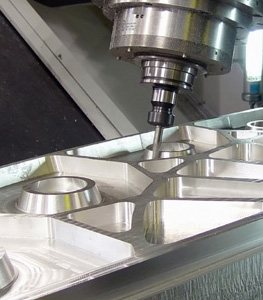
CNC machining
In Automative Industry
Advantages: Diversification, high-precision manufacturing, high production efficiency
- Engine parts
CNC machining is used to manufacture key engine parts such as cylinder blocks, cylinder heads, crankshafts, camshafts and pistons.
- Chassis components
CNC machining is used to manufacture key components of the automobile chassis system, such as suspension components, brake system components, transmission system components, etc.
- Car body manufacturing
It can be used to process parts of the body structure to ensure that it meets the design requirements. This includes body frames, doors, roofs and other components.
- Mold Manufacturing
CNC machining is widely used to manufacture molds required in the automobile production process, including injection molds, die-casting molds, and stamping molds.
Rapid Prototyping
In Automotive Industry
Advantages: rapid manufacturing, high-precision manufacturing, complex structure manufacturing
- Rapid Prototyping
In the early stages of automotive design and development, 3D printing can be used to create rapid prototypes. This helps engineers validate design concepts, conduct functional testing, and conduct design iterations more quickly.
- Customized parts
3D printing allows automakers to customize parts according to customer needs, such as personalized interior parts, exterior body parts or exclusive vehicle accessories.
- Complex structural components
3D printing technology is capable of producing parts with complex geometries and structures that are difficult to produce through traditional manufacturing methods.
- Lightweight design
3D printing can produce lightweight designed parts on demand, thereby reducing the overall vehicle weight and improving fuel efficiency and performance.
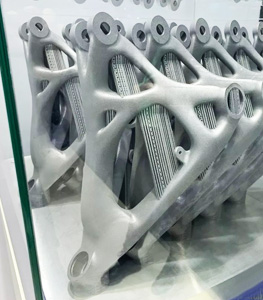
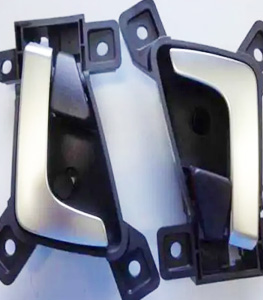
Injection molding
In Automotive Industry
Advantages: high production efficiency, high-precision manufacturing, diversified design
- Body appearance parts
Used to manufacture exterior parts of automobiles, such as body panels, doors, hoods, bumpers, etc.
- Interior parts
Used to produce automotive interior parts, including instrument panels, center consoles, door panels, seat components, etc.
- Lamps and optical components
Used to manufacture optical components such as headlights, taillights, and lamp covers for automobiles.
- Engine and transmission parts
Plastic parts used in the manufacture of some engines and transmission systems, such as fan blades, water tanks, fuel tanks, oil pumps, etc.
Sheet Metal Fabrication
In Automotive Industry
Advantages: low cost, flexible processing, high production efficiency
- Body frame
The body frame is the foundation of the vehicle structure, supports the entire body and has an important impact on the stiffness and safety of the vehicle.
- Fuel and Water Tanks
Used in the manufacture of fuel and water tanks for automobiles, these parts often require sealing and corrosion resistance.
- Exhaust System
Used in the manufacture of automobile exhaust system components, including exhaust pipes and mufflers. These components need to work in high temperature, high pressure and corrosive environments.
- Fenders and Wheel Guards
Used to manufacture fenders and wheel guards to prevent mud, water and other debris from entering the wheel and chassis areas.
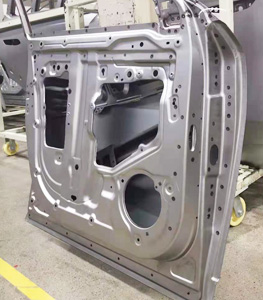
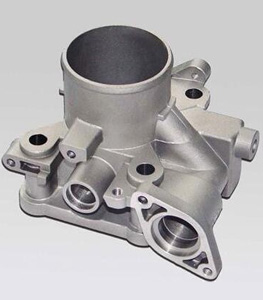
Die Casting
In Automotive Industry
Advantages: low cost, flexible processing, high production efficiency
- Engine parts
Commonly used to manufacture key parts of automobile engines, such as cylinder heads, cylinder blocks, crankcases, etc. These parts require high strength and excellent thermal conductivity, and die casting can meet these requirements.
- Transmission Components
The casings, gears and other key components of automotive transmissions are often manufactured using a die-casting process. This helps provide strength and wear resistance and reduces component weight.
- Suspension system components
used to manufacture various components of the suspension system, such as suspension arms, stabilizer bars, wheel hubs, etc. These parts require a high degree of strength and durability.
- Brake system components
Brake calipers, brake cylinders, and some other brake system components are often die-cast. This helps ensure the dimensional accuracy and strength of the part.
Related Blog
Application and development trend of rapid tooling manufacturing
As people’s quality of life has improved, the demand for various products has increased, and r…
How to analyze and optimize the mold flow of injection molded parts?
A set of high-quality injection molds is inseparable from reasonable design and exquisite processing…
Modern injection mold manufacturing technology and its development trend
In modern industry, there is a very crucial field called the mold industry. Mold technology is indis…


